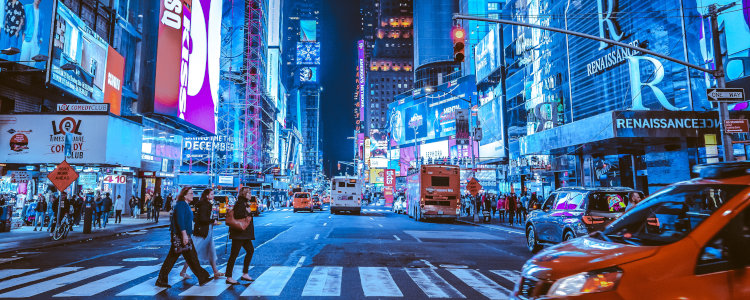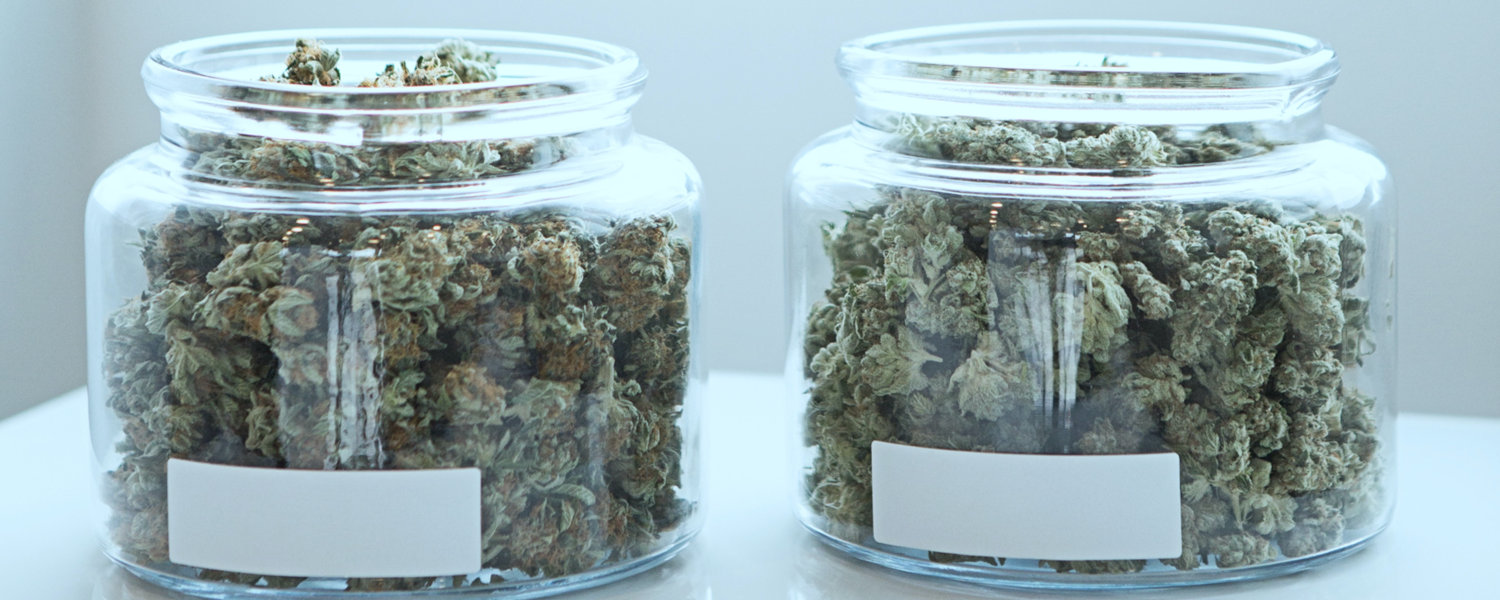In This Article
- Methodology
- Acknowledgments
- What’s the Difference Between Unlicensed and Licensed Dispensaries?
- What Are the Risks of Shopping at an Unlicensed Dispensary?
- How Easy Is It for Consumers to Look Up Their Local Shop?
- Our Shopping Experience
- Lab Results: Test Failed!
- How Contaminated Products Are Diverted to Unlicensed Shops
- Burner Distribution Networks Are Just a Symptom
- What This Means for Consumers
- Potential Solutions
- Special Thanks
In states and counties across the U.S., there exist what are colloquially called "cannabis deserts" – areas without any licensed dispensaries or legal access points for cannabis products. For consumers residing in these cannabis deserts, obtaining products that have undergone proper lab testing and are accurately labeled for potency and content can be difficult, if not outright impossible. And the inability to access regulated cannabis dispensaries poses significant challenges for consumers.
Products sourced from unlicensed shops may contain unknown contaminants or levels of THC far above or below what’s on the packaging, posing potentially severe health risks for recreational and medical consumers alike.
Beyond the immediate health concerns for consumers, cannabis deserts play a role in propagating the unregulated market, hurting legitimate businesses and impacting state tax revenue. When consumers resort to obtaining cannabis from unlicensed sources, licensed businesses become less profitable, and the state loses potential tax dollars that could contribute to various public initiatives and services.
We set out to answer the question of what’s really in illegal cannabis products. Our expectation was that by exposing the alarming risks lurking beneath the surface of illegal cannabis, we could offer insights to consumers so they could make the best decisions for their health and wellbeing.
What we discovered—and what Politico covered in an exclusive—went deeper than contaminated cannabis.
Our findings paint a stark picture of excess regulation and ineffective policies that hurt the consumers they were designed to protect, highlighting the urgent need to end cannabis deserts and expand access to safe, tested cannabis products.
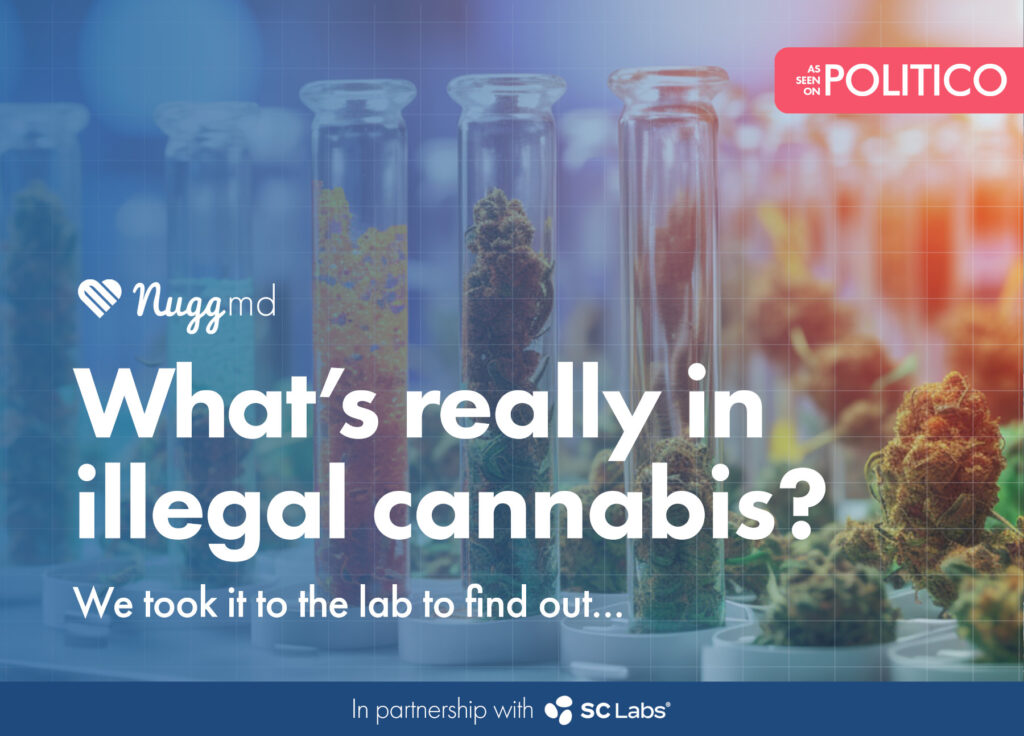
Methodology
In collaboration with SC Labs, we conducted a comprehensive analysis of 18 cannabis products sourced from unlicensed shops in California. This sample consisted of 9 flower products and 9 concentrates, collected from shops in 5 different regions within the state—Altadena, Inglewood, Whittier, Milpitas, and Fresno.
The scope of our analysis involved a range of parameters, including:
- Pesticides
- Heavy metals
- Microbiological contaminants
- Residual solvents
- Foreign materials
We also tested for cannabinoid levels present in the products and compared these against the potency information provided on the product labels or by the budtenders (where available) to assess their accuracy.
Our objective in conducting this rigorous testing regimen was to shed light on the challenges and risks faced by consumers in regions where licensed cannabis options are not available—the aforementioned "cannabis desert."
Our findings from this small sampling do not serve as definitive proof of contamination or inaccurate labeling across all products from unlicensed shops. Instead, this analysis is meant to serve as a snapshot of the potential hazards and quality concerns associated with unregulated sources.
We hope that our findings can act as a catalyst for unlicensed shops to more diligently vet their suppliers, guaranteeing the delivery of safe and accurately labeled cannabis products to consumers. We also aim to advocate for legislative measures that reduce excess regulations and expand access to licensed shops in the interest of consumer safety.
Upon receiving the test results, we directly shared our findings with the shops from which the products were purchased so that each establishment can take appropriate action, especially if they were previously unaware of their product's failure to meet testing standards.
To be clear, our intent isn't to publicly name or shame any legacy shops or operators in the cannabis industry. We merely aim to recognize the challenges many consumers encounter and advocate for changes that will improve access to high-quality, safe cannabis products. We believe everyone deserves access to products that best serve their health needs.
Acknowledgments
| Anthony Pellegrino | Report Author, Writer at NuggMD |
| Alexandra Arnett | Report Fact Checker, Lead Researcher at NuggMD University of Maryland School of Pharmacy, Master of Science in Medical Cannabis Science and Therapeutics |
| Deb Tharp | Report Analyst & Fact Checker, Legal Researcher at NuggMD University of California, Irvine, Bachelor’s in Psychology and Social Behavior | Taft Law School, Santa Ana, Juris Doctorate |
| Tyler Elson | Report Analyst & Editor, Content Marketing Manager at NuggMD |
| SC Labs | Third-Party Lab Testing |
What’s the Difference Between Unlicensed and Licensed Dispensaries?
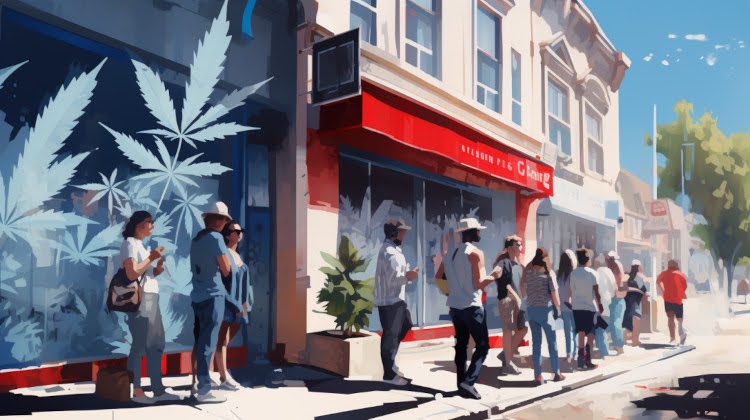
Licensed dispensaries adhere to strict regulations and testing standards, and it's easy to assume all cannabis retailers operate in the same way. But the reality is far more complex. Unlicensed dispensaries operating outside the legal framework represent a significant presence in the market, raising serious concerns about product safety and consumer well-being.
Licensed Dispensaries
Licensed dispensaries adhere to state regulations, with their products all undergoing rigorous testing for quality, potency, and safety. These shops operate within legal boundaries, providing consumers with products that meet industry standards.
Cities allowing a higher number of license types and storefronts generally have a more robust network of licensed dispensaries. As a result of increased availability and access to regulated shops, it's noticeably harder to find unlicensed businesses in these areas.
Unlicensed Dispensaries
Unlicensed dispensaries operate outside the legal framework set by state regulations. These establishments often lack oversight, quality control, and compliance with safety standards. They might offer products that haven't undergone proper testing for contaminants or that previously failed testing, leading to potential health risks for consumers.
In areas with limited licensed dispensaries, unlicensed shops tend to spread, taking advantage of gaps in access. And in cannabis deserts that have banned or severely limited access to regulated shops, the proliferation of unlicensed dispensaries becomes more apparent.
What Are the Risks of Shopping at an Unlicensed Dispensary?
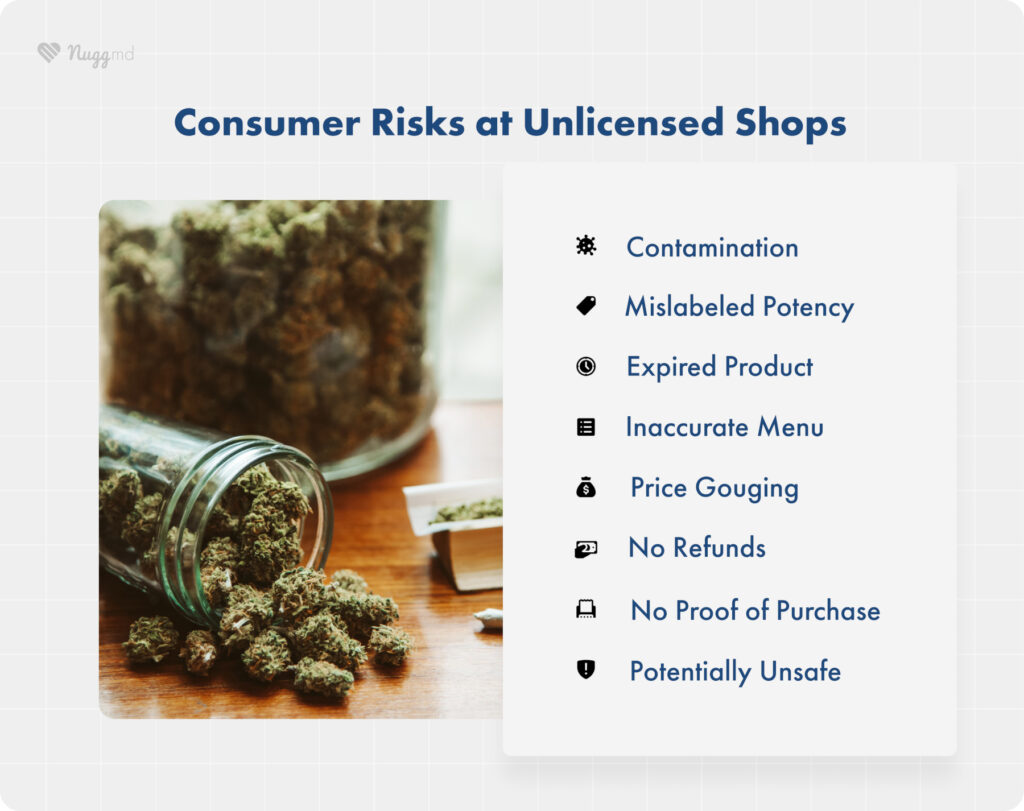
As we discovered, purchasing cannabis from unlicensed shops carries a significant number of health and consumer protection risks.
Health Risks
- Untested Products: Unlicensed shops often offer products that haven't undergone mandatory testing for contaminants such as pesticides and heavy metals. The lack of testing exposes consumers to potential health hazards as they unknowingly consume substances that could be harmful.
- Contaminated Products: Products that failed testing, which are otherwise directed to be disposed of, might actually find their way to unlicensed shops. Consumers purchasing from unregulated outlets face increased odds of ingesting products that are contaminated with pesticides and heavy metals.
- Degraded Product Quality: Unlicensed shops may sell outdated products, leading to degradation in potency, flavor, and altered effects. This diminishes consumers' ability to predict or control their experience, potentially resulting in unexpected and adverse effects.
Consumer Protection & Experience Risks
- Menu and Listing Inaccuracy: Unreliable online menus and product listings hinder informed decision-making and budget planning for consumers. This is especially problematic for medical patients who require specific products for their treatment.
- Unreliable Information: Incorrect information regarding cannabinoids, terpenes, and potency can lead to underwhelming or overwhelming experiences. Underestimating the potency could lead to dangerous overdoses, while a disappointing experience might induce consumers to seek stronger products, increasing the risk of adverse effects in the future.
- Scams and Fraudulent Practices: The lack of oversight and accountability in the unlicensed market increases the likelihood of scams, overcharging, and underdelivering of products. This was evidenced by our findings.
- Inconsistent Selection and Dosing: The unpredictable selection and inaccurate dosing information make it difficult for medical patients to achieve consistent therapeutic effects, disrupting their treatment plans.
These risks highlight the importance of choosing licensed, regulated dispensaries. Licensed products undergo rigorous testing to ensure safety and quality, and dispensaries adhere to strict labeling and information requirements. By prioritizing a safe and informed cannabis experience, consumers can play a role in promoting a responsible and thriving cannabis market. Unfortunately, it can be surprisingly difficult for consumers to know if they’re shopping at a licensed dispensary.
How Easy Is It for Consumers to Look Up Their Local Shop?

Verifying a cannabis shop's legitimacy and licensure status should be a straightforward process for consumers, yet it remains surprisingly frustrating and complex.
Not all consumers know there are ways to look up local shops and licenses. And even those consumers who know the tool exists—and how to use it—can run into additional barriers.
An unfriendly user interface, inaccurate and out-of-date information, and slow responses from the state can all deter consumers from using the system. Not only does this complicate user efforts to make informed decisions about their purchases, but it reduces consumer confidence and hinders the development of a transparent and accountable cannabis market.
The Department of Cannabis Control (DCC) provides a universal license search, ostensibly an accessible tool for consumers to validate a shop's license. However, this system has inherent limitations and inconsistencies. For example, some licensed shops may not appear in the DCC's universal search, while others might only surface so long as users use exact punctuation or alternative DBA (doing business as) names, rendering the process of confirming a shop's legitimacy cumbersome and prone to errors.
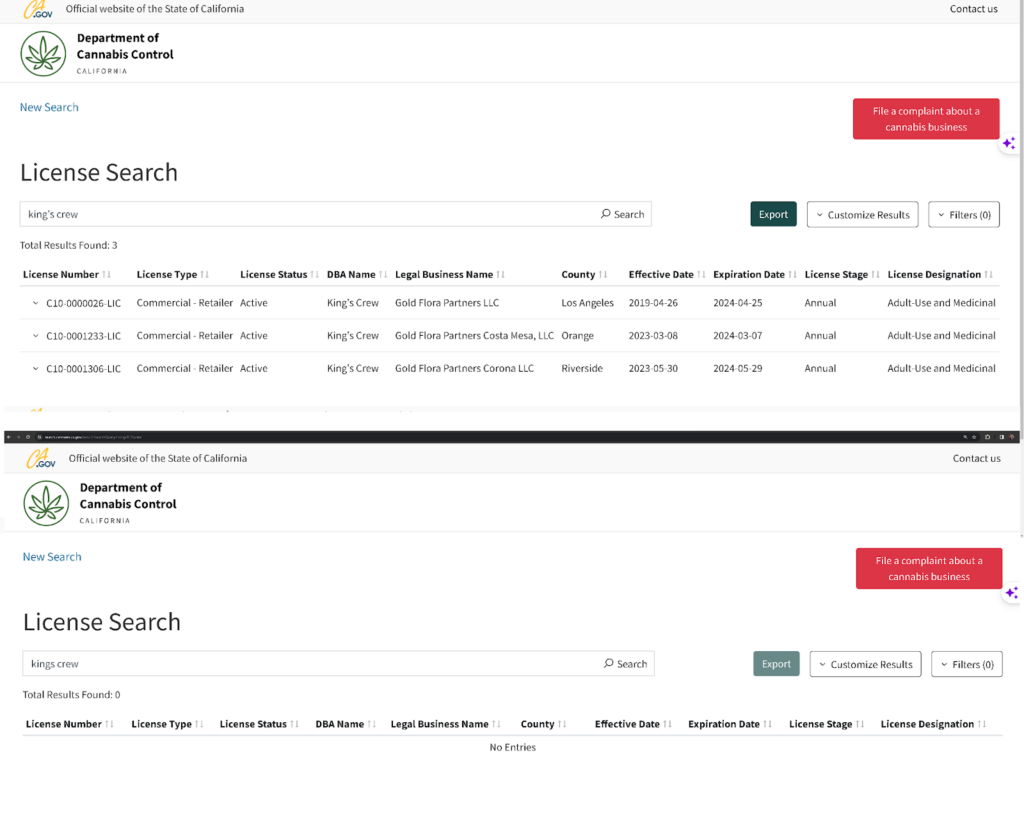
Variations of the address didn’t show up in the database, even though the shop at that location is licensed. This would be the most common default search the user would try to check a dispensary if they can’t find the dispensary by searching variations of its DBA name.
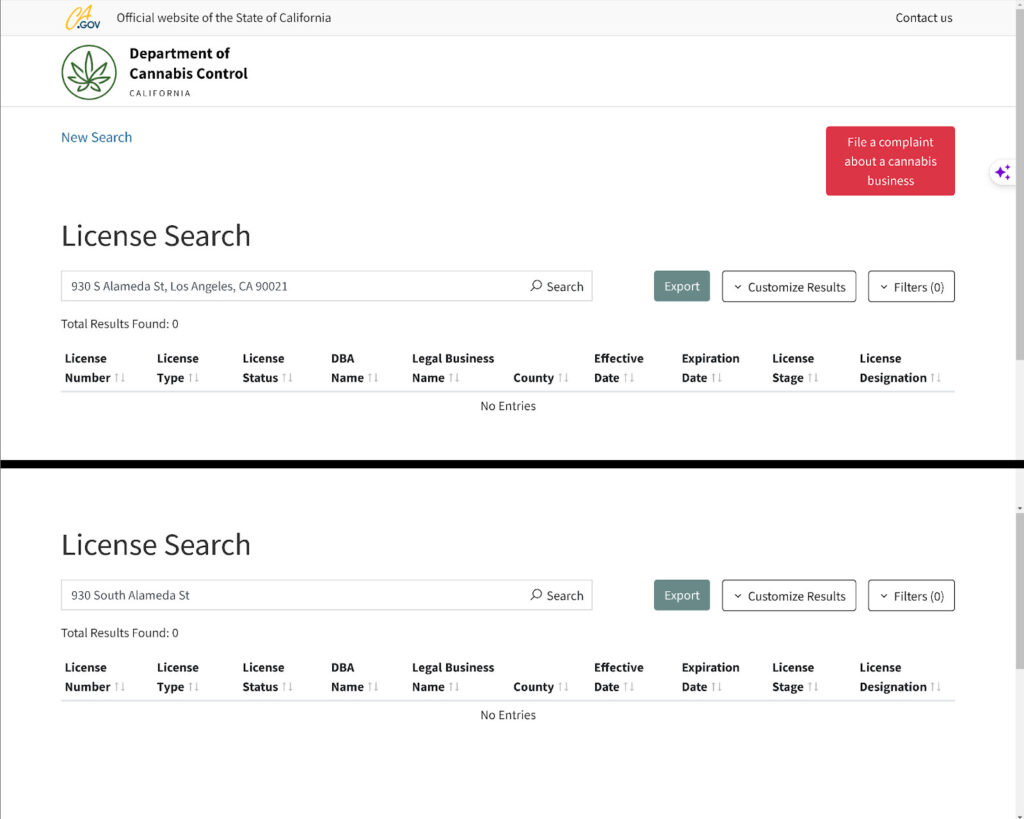
And reaching out to the Department of Cannabis Control (DCC) for clarification can be time-consuming, with responses often taking days, leaving consumers in a state of uncertainty. The DCC itself acknowledges limitations within its own system, including inaccurate or missing DBA names, which further complicates the verification process and undermines consumer confidence.
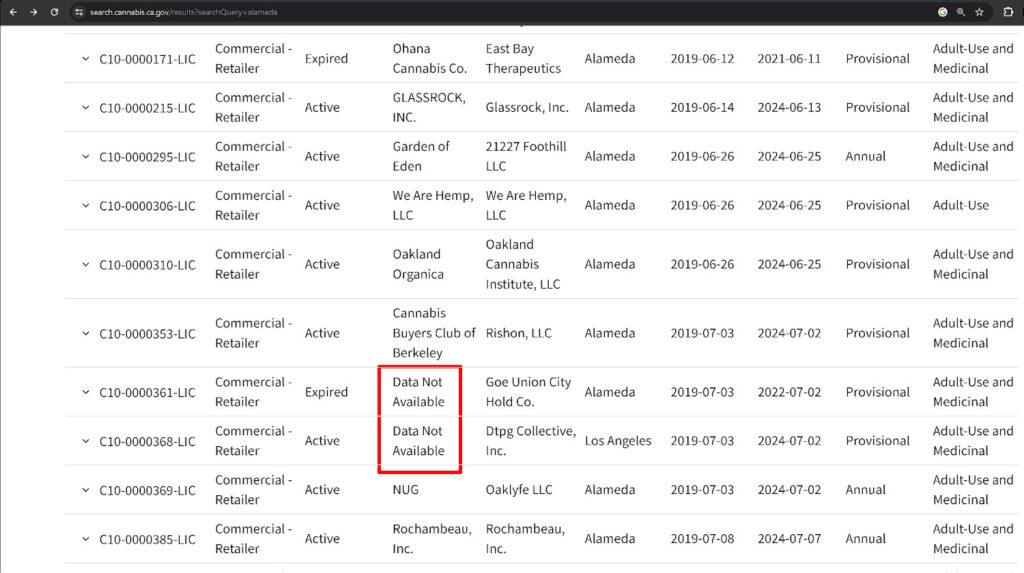
Relying solely on license numbers for verification seems like a foolproof method, but it comes with its own challenges. Unscrupulous dispensaries may use fake or stolen license numbers to deceive consumers (we found 3 without looking), making the verification process virtually meaningless.
Our Shopping Experience
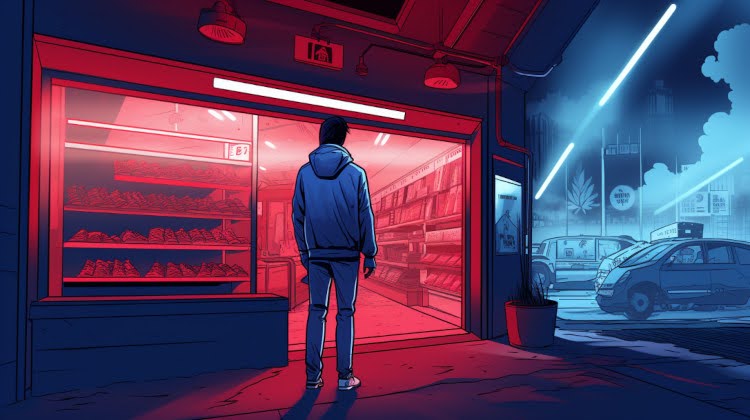
We initially set out with one goal: to understand the risks of consuming cannabis products from unlicensed shops. But as our shopping experience revealed, the risks facing consumers go beyond health risks of contaminated cannabis. While our experience might not encapsulate all legacy shops, it unveiled several alarming issues that highlight potential risks encountered by consumers when shopping at unlicensed establishments.
Challenges We Encountered
- Inaccurate Menus: The discrepancies between advertised products and actual inventory were prevalent, resulting in inaccurate menus that made it challenging to plan our order. For budget-conscious consumers or those who need consistent effects or doses, this variance can be problematic.
- Price Hiking: We faced instances where prices varied significantly from initial listings upon ordering, leading to unexpected and inflated costs. And since these shops are unregulated, consumers have limited—if any—recourse.
- Incorrect Deliveries and Refund Issues: Multiple orders we placed arrived with the wrong product or product size without any reliable way to rectify the mistake or receive a refund for incorrect deliveries.
- Questionable Services and Safety Concerns: Some shops requested unconventional meeting spots (one asked us to meet at a Taco Bell parking lot, for instance), which raises obvious safety concerns. Others offered illicit products beyond cannabis, from unsourced psychedelics to cloned credit cards, heightening our team’s apprehensions and safety risks for consumers.
Our lab tests revealed alarming findings about products obtained from unlicensed shops. Approximately 72.2% of these products were either contaminated, inaccurately labeled for THC potency, or both. And many products lacked labeling or compliance with California regulations, often relying on markers and scraps of paper that lacked any useful information about potency, cannabinoid content, or testing.
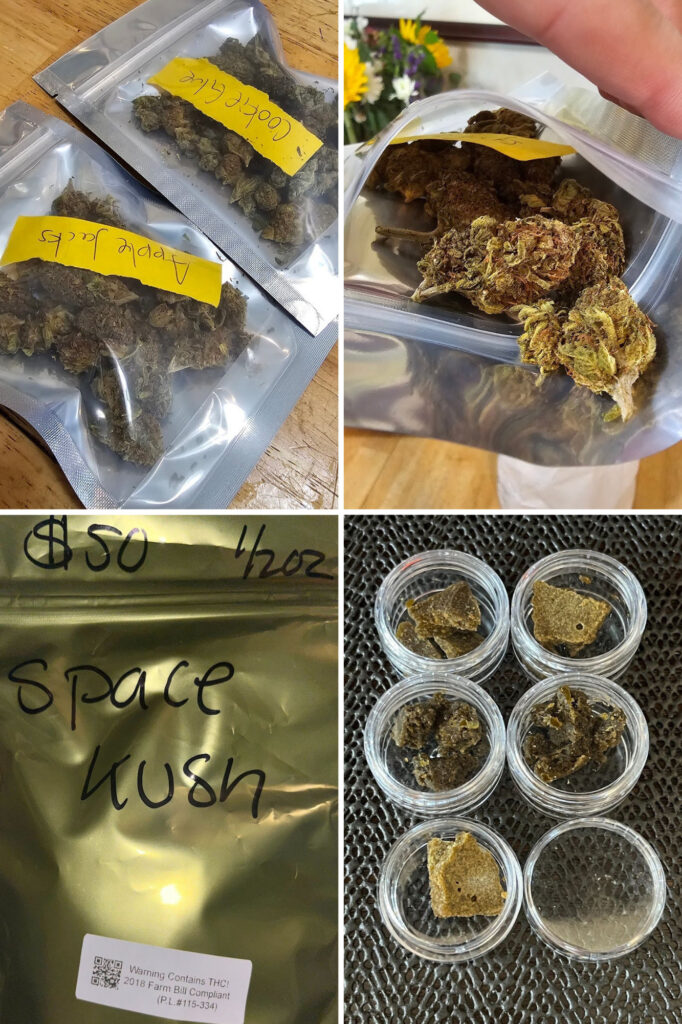
The lack of adherence to age verification protocols, absence of receipts, and instances of receiving outdated products further undermine consumer protections.
- None of the unlicensed shops asked for ID when we were shopping.
- Without a receipt, we had limited recourse to be reimbursed when one of our orders was incorrect and another was shorted.
- One unlicensed shop provided concentrates that were over 26 months after their packaging date and 14 months past their “Best By” date.
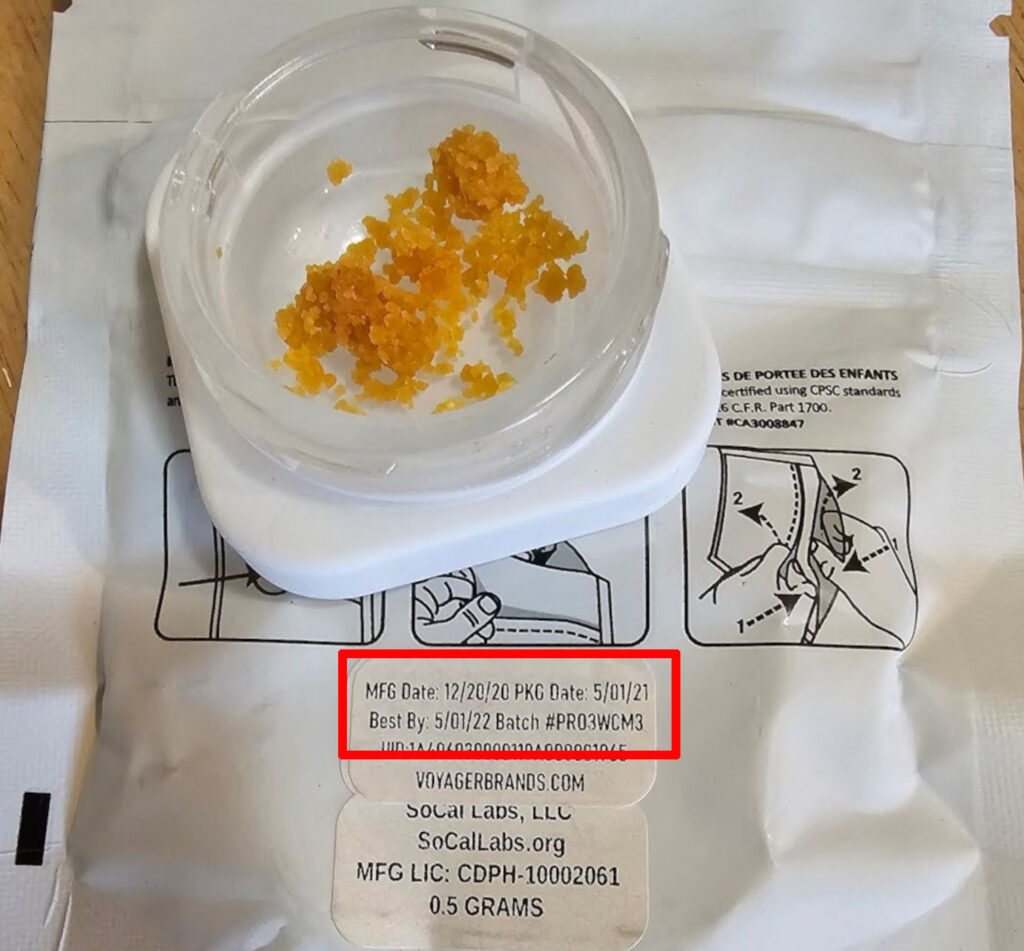
Ultimately, our investigation unveiled a troubling reality for cannabis consumers: a lack of adequate protection and transparency that goes beyond the products themselves. The absence of proper receipts, inaccurate online menus, and limited access to licensed dispensaries create a perilous environment where consumers are vulnerable to misinformation, scams, and potentially unsafe products.
In other words, banning legitimate cannabis retailers and limiting licenses doesn’t just fail to protect consumers as legislators intended—it actively reduces consumer safety.
Lab Results: Test Failed!
Our investigation involved testing 18 different products sourced from 5 distinct locations. This exploration was not without its hurdles, as we were shorted by two different shops (yet another risk faced by consumers in the illicit market).
The outcome of the laboratory tests was alarming—none of the unlicensed shops passed testing on all products. No shop had more than one product cleanly pass testing. And on average, an astonishing 75 percent of products from unlicensed shops failed contamination testing.
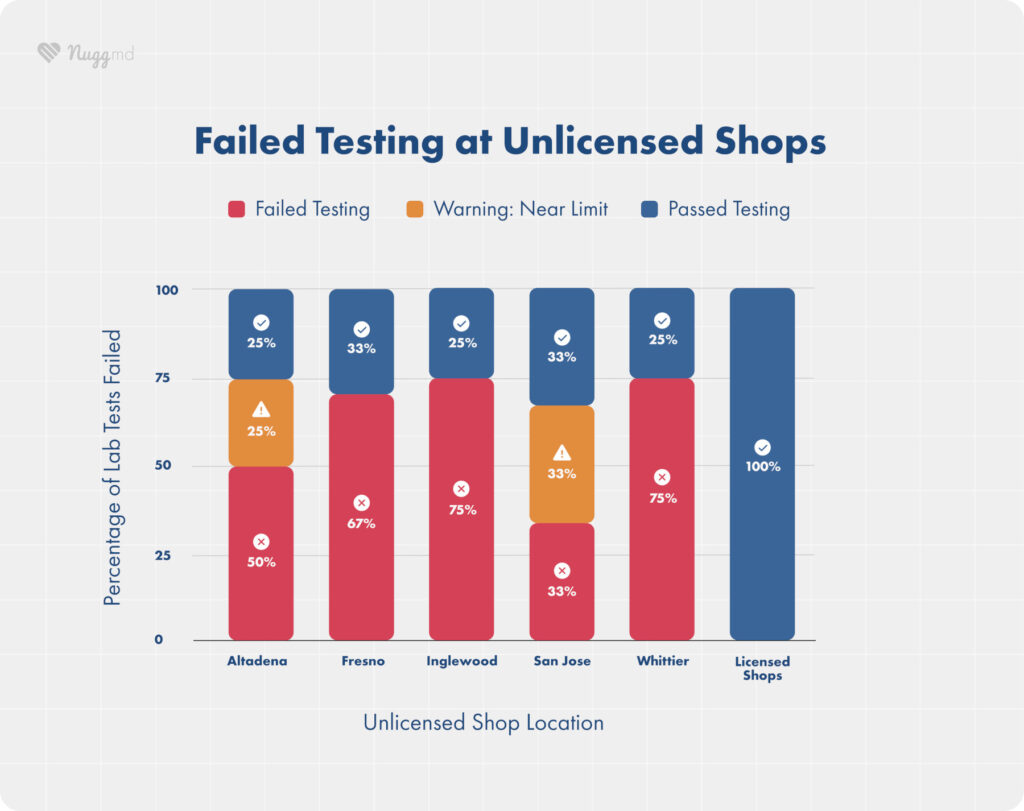
The severity of the failed tests was concerning. Over 60 percent of the samples we tested failed for one or more pesticides, often surpassing testing limits by multiple folds—ranging from 5 to 10 times the acceptable limit. Shockingly, one product exceeded the pesticide limit by a staggering 400 times.
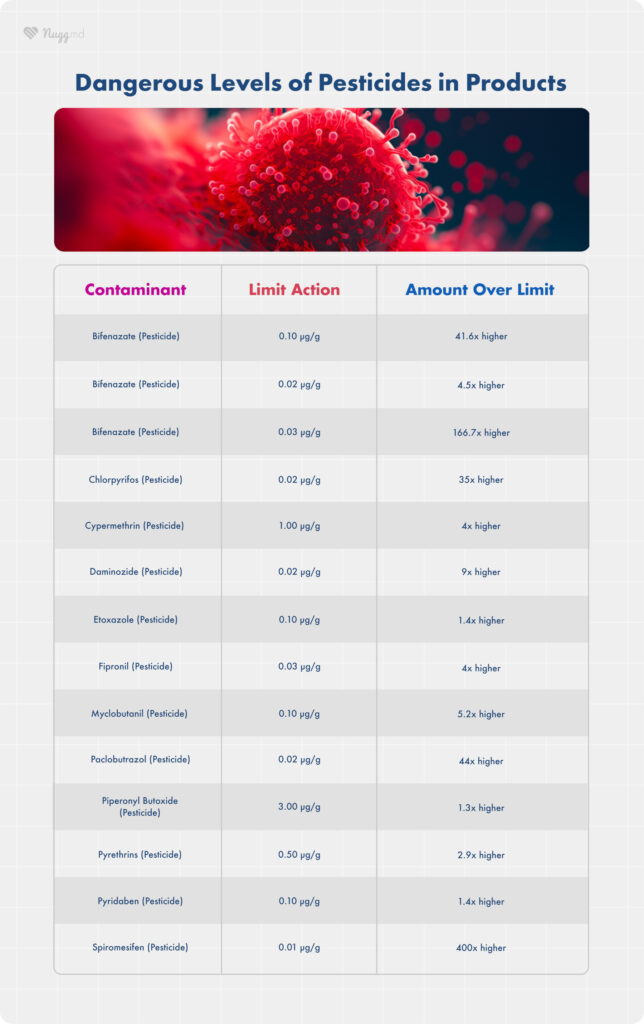
The discrepancy between the actual THC levels and those provided on the labels or by budtenders (when labels weren’t provided) was significant. Three in four products from unlicensed shops had THC levels nearly 20% lower than what was claimed—a substantial inconsistency and potential misrepresentation to consumers.
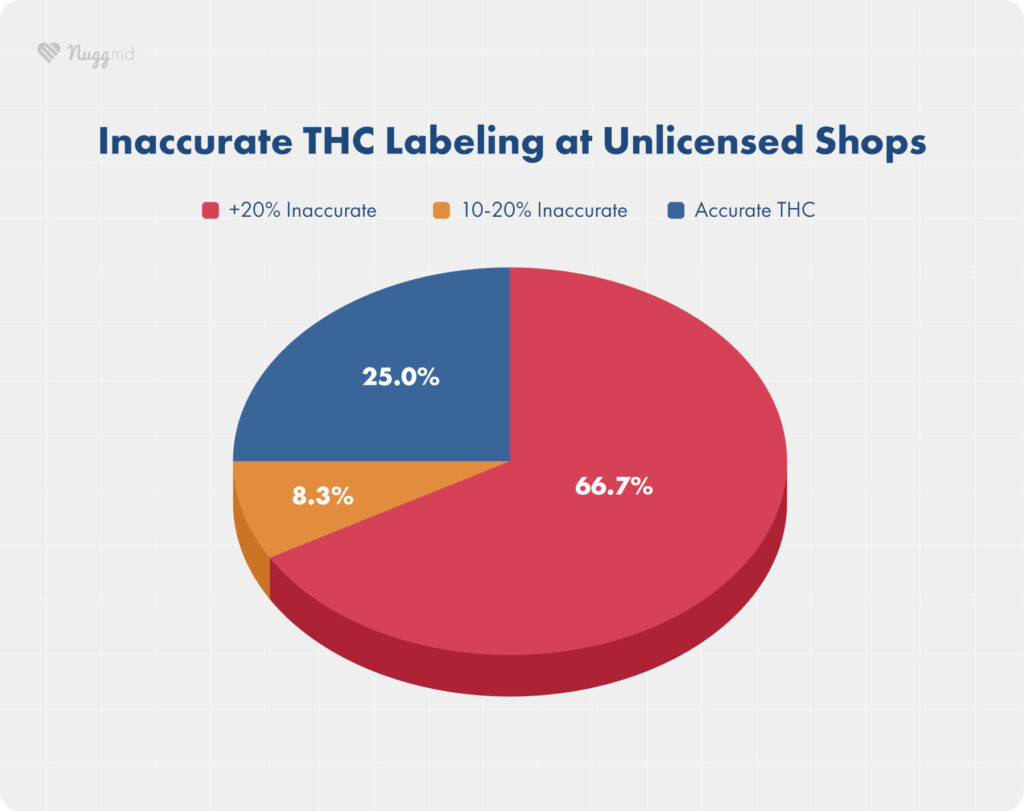
The quality of cannabis flower from illicit shops was of particular concern, with nearly 80 percent of flower we tested failing for pesticides or other contaminants. One sample we obtained in Fresno tested over the limit for three distinct pesticides, a heavy metal (cadmium), and aspergillus niger.
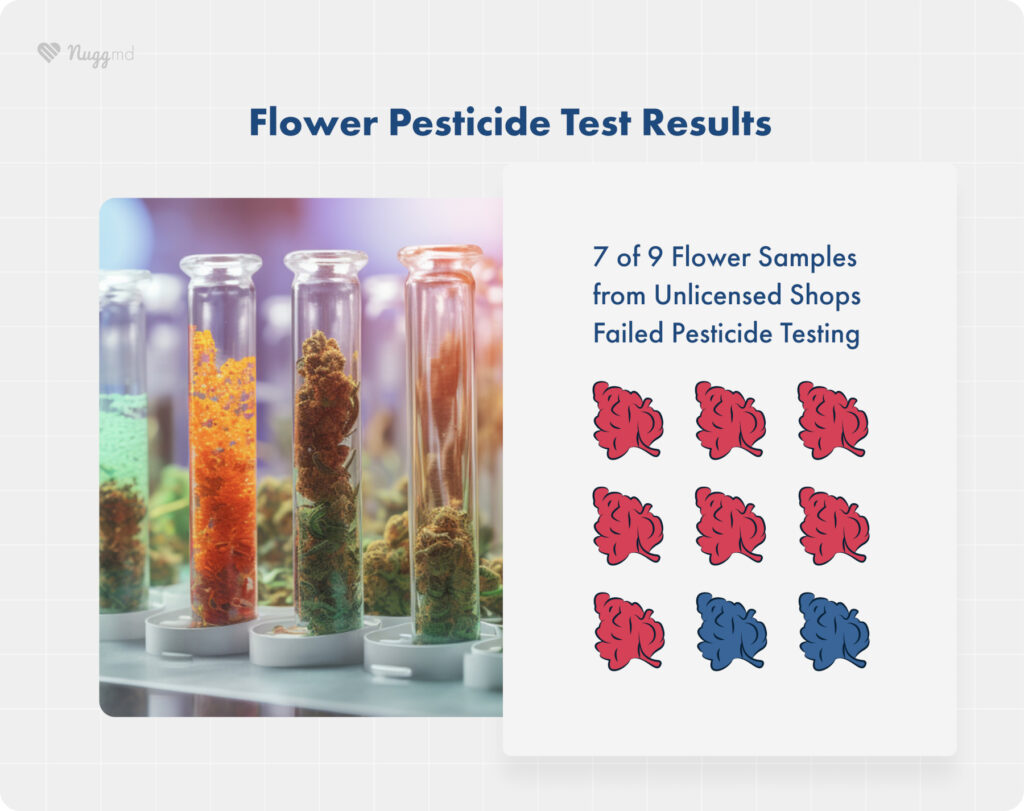
The concentrates we purchased, while showing a slightly better pass rate compared to flowers, still displayed a worrying trend. Only 33.3 percent of concentrate samples managed to pass testing, with one sample of Egyptian hashish procured in Inglewood failing testing for an alarming 10 different pesticides.
These results leave no room for doubt about the immediate need for a change, and the essential transition towards procuring cannabis products exclusively through licensed, compliant channels to guarantee consumer safety and well-being.
How Contaminated Products Are Diverted to Unlicensed Shops
There are several suspected avenues that untested or contaminated products take to arrive into the black market.
1. Burner distributors diverting wholesale flower through the black market.
"Burner distros" is a term used to describe licensed distributors that sell a portion or all of their legally acquired wholesale flower or manufactured cannabis products into the black market. The product is entered into the METRC tracking system but is then reported as damaged, lost, or having no value. They are called burner distros because they allow the license to lapse before their illegal activity is discovered. Distributors used to collect and remit taxes as well, but no longer handle cultivation or excise taxes as of 2023.
2. Products that fail testing are occasionally sold instead of destroyed.
Cannabis that fails lab testing is to be rendered unusable before disposal so no one can scavenge the product for personal or commercial use. However, video surveillance of the destruction isn’t required for all products. This leaves an avenue for contaminated products to be sold on the black market by a very few unscrupulous operators.
3. Expired products are diverted to the black market.
Expired products are meant to be removed from their packaging and rendered unrecognizable and unusable for disposal. However, as we saw firsthand when purchasing from unregulated shops, many expired products remain on the black market. One shop sold us concentrates that were more than a year past their Best By date.
Burner Distribution Networks Are Just a Symptom

Whether it is done under the guise of consumer protection efforts or more openly under the flag of anti-cannabis bias, current cannabis policy supports black market activity while building countless barriers to legal activity.
- A 40% effective tax rate for legal products. Legal markets can’t compete with the price of the illicit market.
- Costly delivery requirements that do nothing to protect public safety. Cannabis retailers that wish to offer legal delivery are required to meet costly requirements that arguably do little to improve public safety. Black market services don’t have to meet these requirements. This further increases the cost of legal cannabis while making lower price black-market products more appealing to budget-conscious consumers.
- Excessive marketing restrictions. Legal operators have severe advertising restrictions that limit the public's ability to find them. Black-market retailers simply ignore these restrictions, giving them a competitive edge that they otherwise wouldn't have.
- Local regulations can ban legal sales or make it impossible to operate honestly. Local bans create voids in availability but don't decrease demand. Black market operators rush in to fill this demand. As a result, in an effort to “protect” their communities from the “dangers of cannabis,” local bans actually reduce consumer protections and facilitate the conditions for black market shops to thrive.
- A track and trace system that charges a premium while failing to work correctly. Legislators like to claim that cannabis products can be reliably tracked from seed to end user. But the current system is simply incapable of delivering on that promise. And even if the track and trace system was greatly improved, it would be rendered useless by mere ingenuity, something that cannabis entrepreneurs proudly have in spades. Track and trace is just expensive, labor-intensive window dressing resulting in another added cost and time drain heaped on legal operators.
The result of these barriers to legal operators is clear: people are incentivized to game the system. Some do so in order to offset the unreasonably high costs and make ends meet. Others see the current market conditions as an opportunity to turn a profit by selling excess or unusable product on the less expensive, less regulated black market.
Put another way, burner distributors are an expected outcome of current market conditions. But just because we know how burner distros operate doesn't mean it's easily proved. And focusing on eliminating burner distros without addressing excess regulations is like taking cough medicine then lighting up a cigarette.
The system—and as a result, the legal retailers and millions of medical and recreational cannabis consumers—are better served by fixing the root of the problem: excess regulation and taxation that makes legal cannabis prices prohibitive for consumers.
So what’s the solution?
The problems with Prop 64 can only be fixed by voters; legislators can’t change citizen-initiative law in California without voter approval to do so. The legislature could add an issue to the ballot, or the industry could get together and propose a solution for a vote.
One clear option is to change the way cannabis is regulated. That doesn’t mean eliminating oversight. Rather, instead of treating the plant like a Schedule I drug, approach regulation like we do with wine—or better yet, produce. Reduce the regulatory costs that have made legal cannabis prohibitive. Not only will this encourage price equity and a shift away from black market sellers and burner distributors, but it will separate the challenges of the legitimate cannabis market from the dangers of the black market in the minds of consumers, helping to reduce misinformation that threatens consumer safety.
It's the only thing that makes sense.
But it isn’t a fast solution. Thankfully, there are steps consumers and legislators can take in the short term that will help.
What This Means for Consumers
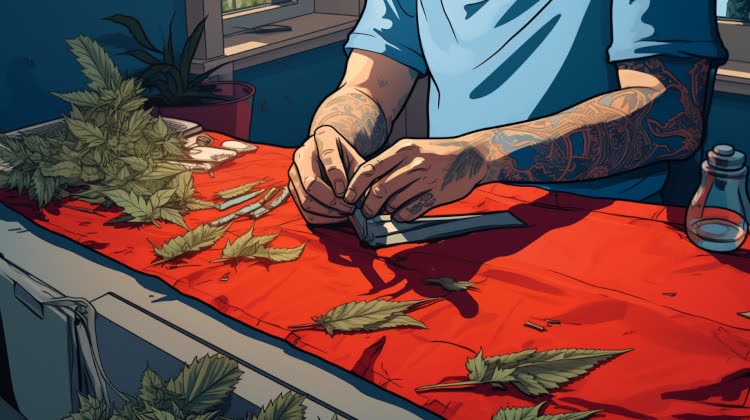
Unlicensed shops operate outside the legal framework, exempt from the stringent testing and quality control standards applied to licensed dispensaries. This lack of oversight translates to potential health risks for consumers, and combating those risks starts with understanding them.
- Exposure to harmful contaminants: Unlicensed products may contain pesticides, heavy metals, microbial pathogens, and other harmful substances, posing serious health risks. Always buy properly labeled products from licensed retailers only.
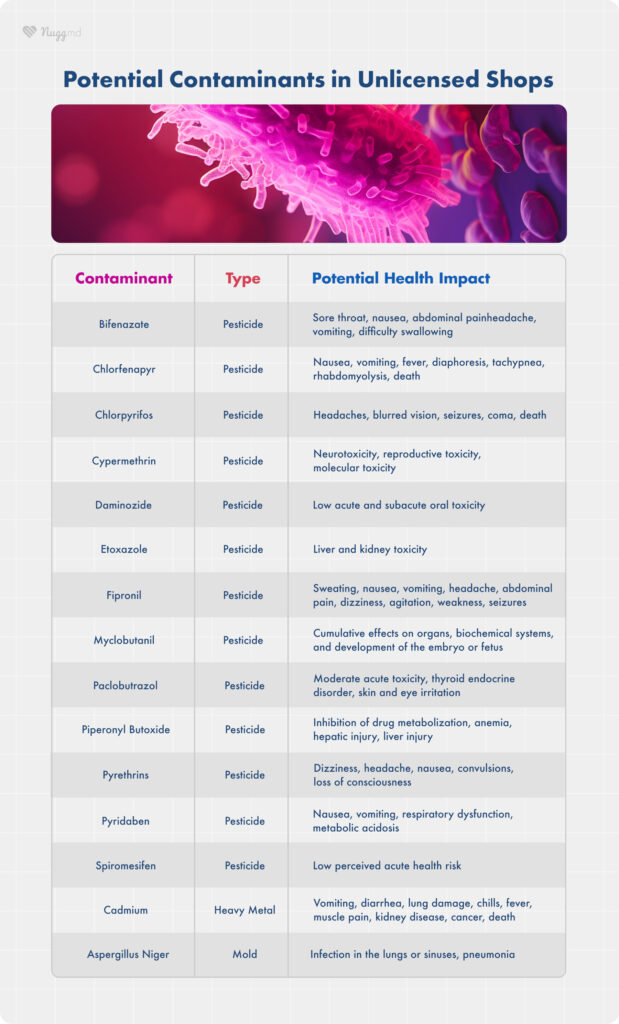
- Inaccurate labeling: Inaccurate labeling of potency levels and cannabinoid profiles can lead to unpredictable and potentially dangerous experiences, especially for medical patients relying on specific effects. While there may always be some variance in cannabinoid levels over time and from one batch to another, shopping at licensed dispensaries gives consumers access to more accurate information, thereby reducing the risk of mislabeled products.
Inaccurate potency levels discovered during our testing present a less immediate but equally concerning issue. When consumers rely on specific effects or a particular dosage, inaccurately labeled products hamper their ability to achieve the intended relief. This discrepancy can lead to various potentially harmful outcomes.
Products that claim to have higher levels of THC, CBD and other cannabinoids may provide inadequate relief for patients in need. Not only might the consumer remain in pain or distress for longer, but they may believe they need larger doses or supplemental medications to get the desired relief. Combining cannabis with other medications can increase the risk of adverse interactions and side-effects. And the mistaken belief that higher doses are necessary to find relief could lead to over-intoxication in subsequent purchases.
The existence of cannabis deserts—and the difficulty verifying shop licenses—significantly exacerbates these consumer risks. Limited access to licensed shops results in consumers resorting to untested products from unregulated sources. Areas that ban cannabis retailers or greatly limit licenses not only compromise consumer safety but also restrict inventory and selection, forcing consumers to travel considerable distances. Such travel isn’t feasible for all consumers, forcing many to choose between unsafe, lengthy round-trip journeys or substandard products from unlicensed shops.
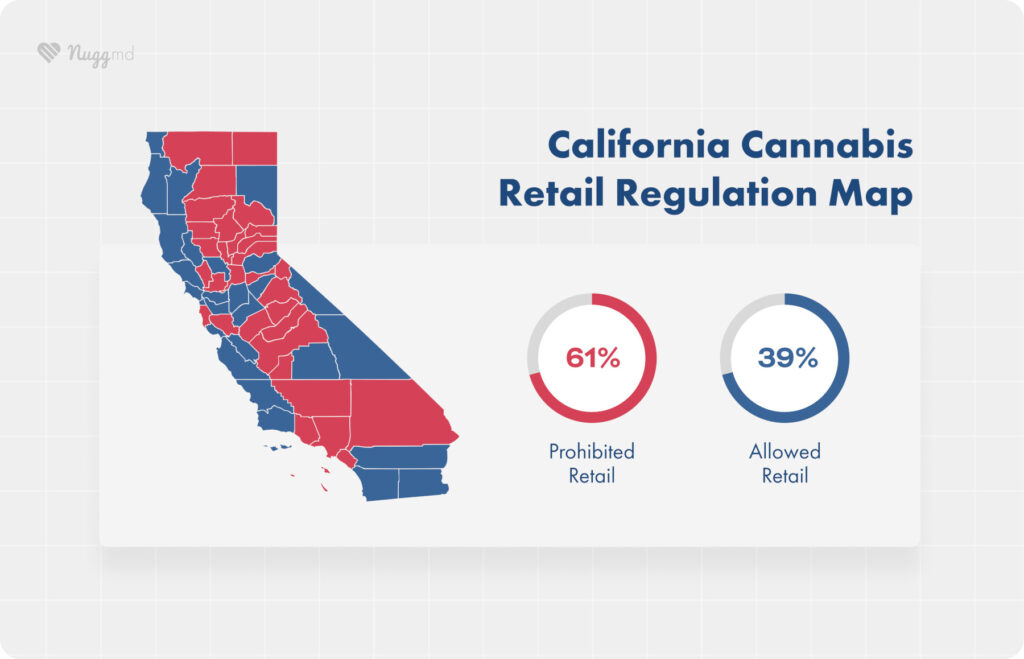
Ultimately, the limitations on licensed cannabis shops create a detrimental environment where consumer safety is compromised, access to specific products is restricted, and individuals—especially those with mobility issues or in remote areas—are unjustly disadvantaged in their pursuit of safe and suitable cannabis options.
Potential Solutions
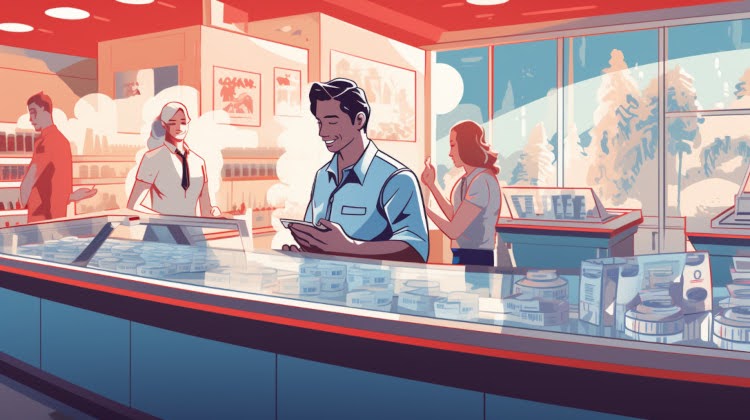
While there isn’t a simple solution to the challenges facing the cannabis market, implementing specific measures can significantly improve consumer protection and promote a thriving legal industry.
Legalization and Robust Regulatory Programs
In areas actively promoting legal sales while simultaneously deterring unlicensed shops, we observed a dramatic reduction in illicit activity. When areas restrict or limit the number of licensed cannabis shops, it inadvertently fuels the expansion of unlicensed shops, with the consumer bearing the brunt of the consequences.
This finding offers compelling evidence that a well-regulated legal market serves as the most effective solution to eliminate cannabis deserts and ensure wider access to safe and tested cannabis options for all consumers.
The ongoing considerations around rescheduling cannabis on a federal level provide an opportunity to establish consistent, nationwide regulations for safe and accountable cannabis commerce.
Streamlining Legacy Shop Licensing Processes
Many legacy shops are eager to obtain licenses but face limitations such as high costs, complex procedures, and limited numbers of licenses. Improving this process not only encourages compliance but also diminishes the competitive advantage of unlicensed shops. Doing so can boost the sales and appeal of legitimate shops as well as tax revenue for the state.
When excess regulations are applied to the legal market as a way to combat illicit shops, it erodes trust in the industry as a whole by associating the industry’s legal retailers with the most visible but least accountable players.
Improved Tools for Consumers to Verify Shop Licenses
Simplifying the process for consumers to verify shop licenses presents a powerful solution to the current challenges plaguing the cannabis market. As our own experiences with license verification revealed, accessible and user-friendly systems are urgently needed.
By educating consumers on this process and providing access to accurate licensing information from easy-to-use systems, we can empower consumers to make informed decisions and choose licensed, compliant shops. This shift will contribute to a safer, more transparent cannabis market, benefiting both consumers and legitimate businesses.
Consumer Education on the Risks
Many consumers remain unaware of the dangers posed by unregulated shops and the potential health hazards lurking within their untested products. By raising awareness about these risks, consumers can prioritize their health and make informed choices about their purchases.
Educating consumers about the inherent risks associated with shopping at unlicensed cannabis establishments, as well as how they can verify if a shop is licensed, will remain an essential step as long as unlicensed shops have room to flourish.
Special Thanks
In the course of conducting this comprehensive report aimed at shedding light on the risks associated with unlicensed cannabis shops, we want to express our sincere gratitude to the individuals and organizations who made this investigation possible.
A sincere thanks to SC Labs for their collaboration and invaluable assistance in conducting the extensive testing featured in this report. Their commitment to upholding consumer safety and quality standards has been instrumental in providing insights into the state of cannabis products found in unlicensed shops.
We extend our thanks to Mona Zhang and Politico for their dedication to covering this critical topic. Their interest in exploring the realities of cannabis and the potential hazards of shopping at unlicensed shops has contributed significantly to raising awareness among readers and the broader community.
Our deep appreciation goes to the dedicated members of the NuggMD team for procuring the products and facilitating the execution of this extensive testing endeavor. Their dedication and support were indispensable in the completion and success of this report.
Finally, we want to thank all licensed shops and advocates committed to enhancing consumer safety within the cannabis industry. Their relentless efforts to uphold regulatory compliance and advocate for higher standards have been pivotal in advocating for a safer and more transparent cannabis market.
The information in this article and any included images or charts are for educational purposes only. This information is neither a substitute for, nor does it replace, professional legal advice or medical advice, diagnosis, or treatment. If you have any concerns or questions about laws, regulations, or your health, you should always consult with an attorney, physician or other licensed professional.


